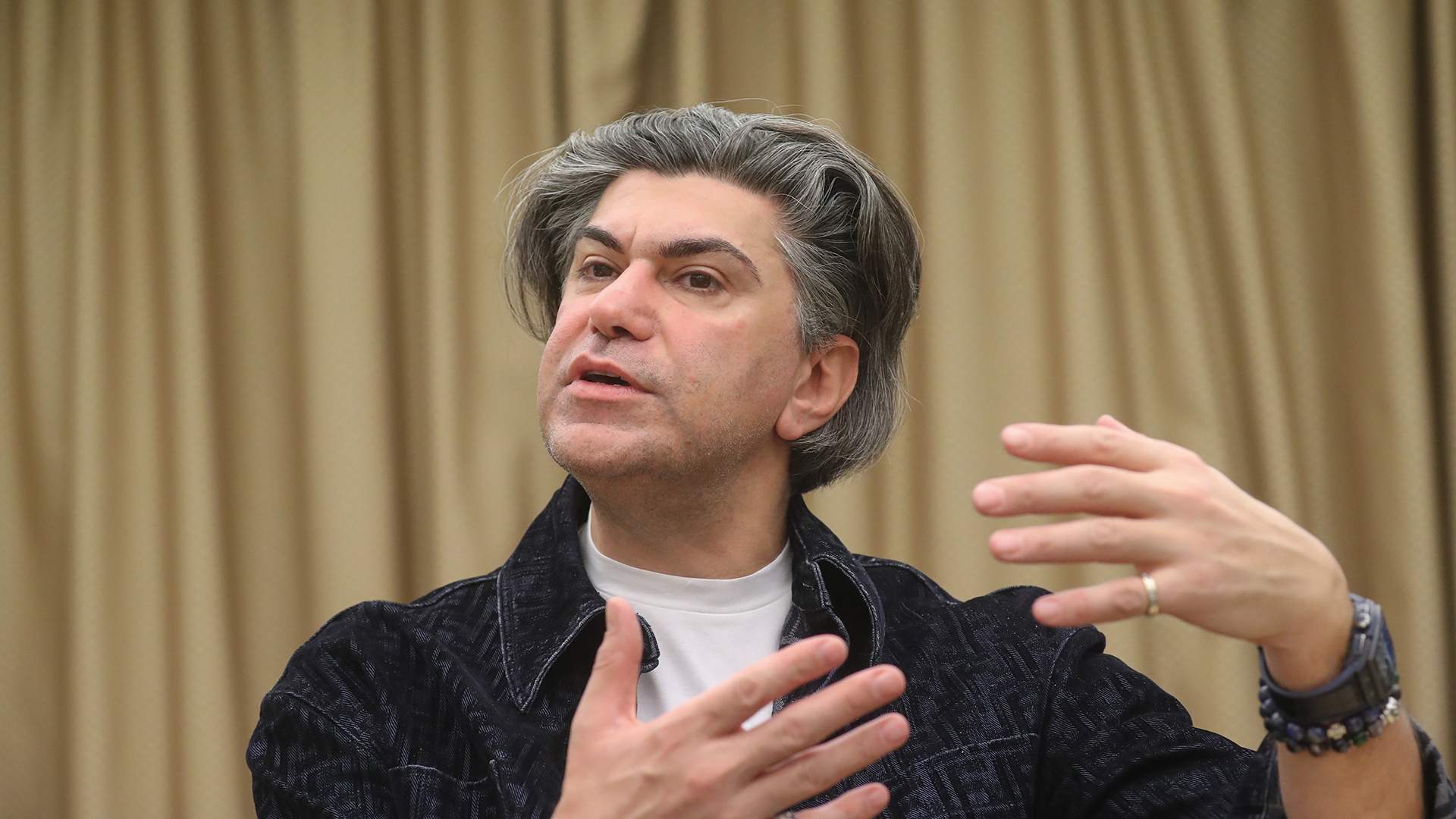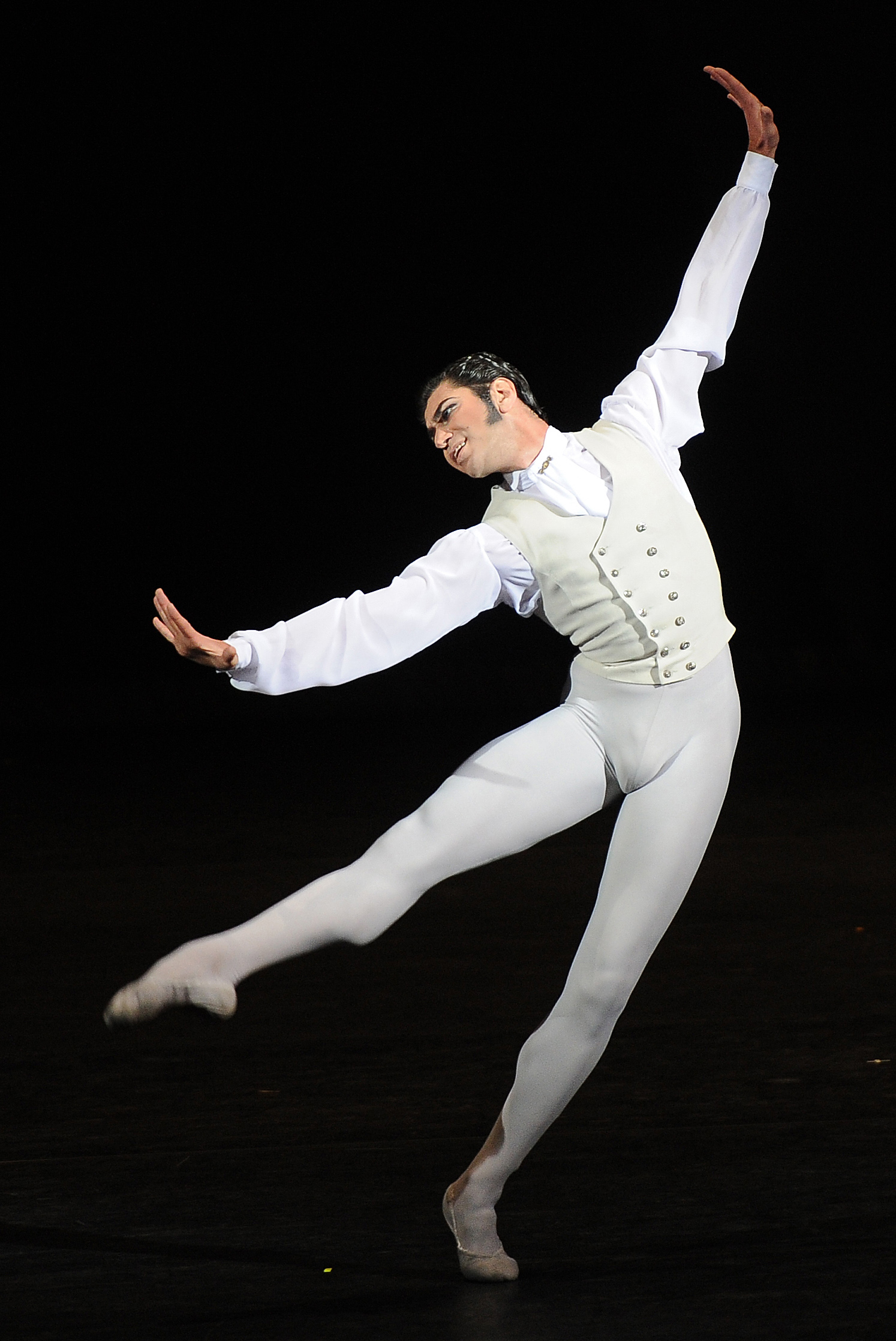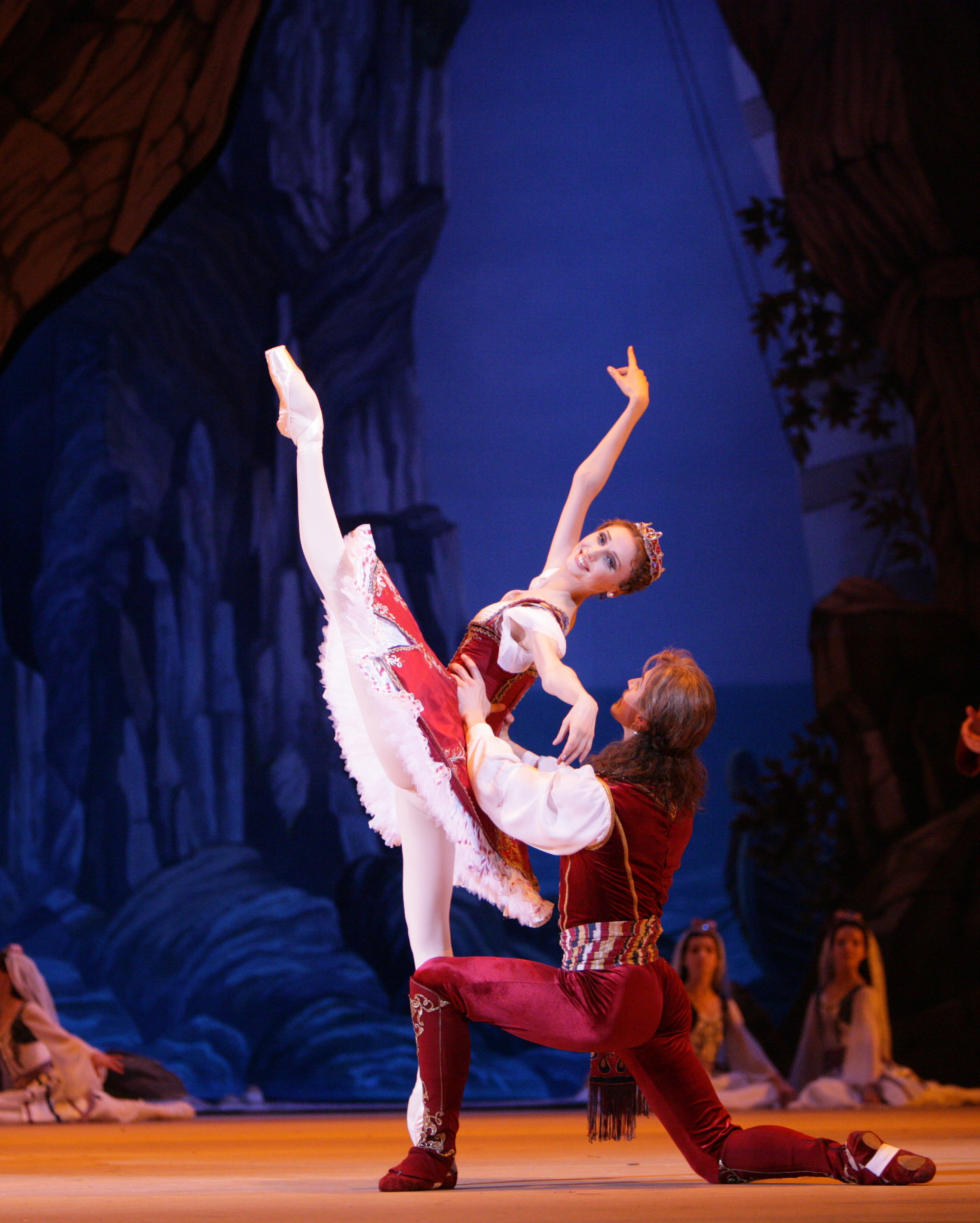"Only the Politburo could buy tickets to The Nutcracker on December 31st."

First he went on the stage of the Kremlin and only then on the stage of the Bolshoi Theater. People's Artist of Russia Nikolai Tsiskaridze has been watching ticket resellers for "The Nutcracker" for many years, he knows them by sight, and it seems to him that it is easy to fight speculation at the GABT. On December 18 and 19, the rector of the Vaganova Academy of Russian Ballet will present "The Nutcracker" at the Kremlin. Vaganova will present a New Year's performance of Tchaikovsky's music performed by his students at the Kremlin Palace. And on December 12 - Constitution Day - in the Kremlin Nikolai Tsiskaridze was awarded the Order "For Services to the Fatherland" IV degree. "Izvestia" congratulated the artist and talked to him about ballet and tickets to it.
"We saw books for children about ballet and were horrified by their content"
- Your new book "Mosaic. Ballet. The Nutcracker" could become a bestseller like "My Theater." Now you in co-authorship with Irina Deshkova decided to educate the audience. You tell in detail about the ballet "The Nutcracker". Why did this idea arise?
- Once, together with my teacher Irina Pavlovna Deshkova, we saw books for children about ballet in a souvenir shop in one of the museums and were horrified by their content. Then we decided to tell about the traditions, the school, and Tchaikovsky's New Year's ballet itself. Without the wisdom and knowledge of Irina Pavlovna the book "Mosaic. Ballet. Nutcracker" would not have been born.
- Did you have any desire to write a chapter on how to dress for the theater?
- No, because it depends on the income of each person. It's another matter if the theaters themselves introduce a dress code. When we danced at the Cairo Opera House, the audience could not enter the hall without a tie. Our artistic director was not allowed in. It was hot and he came in a suit, but he didn't wear a tie.
I think if rules for visiting the theater were introduced, people dressed in miniskirts or sandals ....
- ...or sweatpants...
- Yes, and sweatpants would not be allowed in the auditorium.
- I recently met a man at the Bolshoi with Nordic walking poles.
- But he had a ticket.
- The Bolshoi is a theater for the chosen few?
- No, it is a state theater, the main theater of the country. Once as a guest, I met people who came from the provinces. It turned out that they had never been to the theater. I invited them. And then they told me that they went to TSUM and bought outfits. They hadn't slept the night before, they got up early and were preparing for the evening.
You see, for many people, going to the Bolshoi is a holiday. Because the GABT is pomp and beauty. And it's important that everyone can go there. But tickets are hard to get. And it's always been that way. Previously, only those who were related to the Politburo or the ministry could buy seats for "The Nutcracker" on December 31.
- "Izvestia" conducted a study on pricing for performances of "The Nutcracker". So, this magical name allowed theaters to raise the cost by an average of 50%.
- And still everyone will buy tickets - even if you have a naked Christmas tree on stage. And you can even go out in jeans.
- On December 18 and 19 in the State Kremlin Palace your students from the Academy of Russian Ballet named after A.Ya. Vaganova will present the ballet "The Nutcracker" choreographed by Vainonen. Everything will be classical, no improvisation. Tell me, how do you strike a balance between the desire to make money and the affordability of the performance?
- The stage of the Kremlin Palace has been familiar to me since childhood, I have performed there many times.
- Because the Kremlin Palace was once a branch of the Bolshoi Theater.
- Yes. You know, I first went on the stage of the Kremlin and only then on the stage of the State Academic Bolshoi Theater. In Soviet times, the most expensive ticket there cost 3 rubles 50 kopecks. For the seats higher up and on the sides, the audience paid a very small sum. And even now these tickets are inexpensive. Back then there were not such big salaries as there are now.
The difference between The Nutcracker, which the Academy performs in the Kremlin, and the GABT performance that we have is a one-off event, which, thank God, we can do because we participate in the Priority 2030 program. We are allocated part of the money so that we can realize this creative trip. But we're also being watched.
- So you also have to report?
- Of course! And then the officials will see how much we earned and what we spent the money on.
- And what do you usually spend it on?
- Mostly on teachers' salaries. At the end of the year, I can honestly tell you, they'll make a good profit. In my native Moscow school, I've never seen such money.
"Speculation on children's performances is the first sign of success."
- The most expensive ticket for your "Nutcracker" costs 25 thousand, and that year for the Bolshoi Theater performance cost 20 thousand rubles. So it turns out that the children's "Nutcracker" is more expensive than the GABT soloists' performance?
- No. After all, now tickets to the parterre of the Bolshoi Theater cost 50-100 thousand. And we have 25 thousand cost only the first rows. There is no need to compare a state theater, which exists on taxpayers' money and gives more than 600 performances a year, and a one-off event of the Vaganova Academy.
We come to Moscow twice a year - in winter with "The Nutcracker" and in summer with the graduation performance. And one year we found out that our tickets were being sold by hand on the square in front of the Kremlin Hall. The resellers bought them up because they were inexpensive, and pushed them to people at an inflated price. And they were taken from them anyway.
Speculation on children's shows is the first sign of success! That's when we started raising prices. We decided that it's better to let the Academy make money than the swindlers. Then I could put more money aside for the next trip, renew costumes and props, and give out bonuses.
- There are privileged categories of spectators at the Bolshoi. Low-price tickets are reserved for them.
- Our performances are always attended by the families of SWO participants, children from schools and other privileged categories. They do not pay for tickets. And sometimes some corporation buys out tickets and gives a trip to the performance to those who can't afford it.
- How do you combat profiteers?
- I've been watching the profiteers for years, I know them by sight. It seems to me that it is so easy to fight speculation at the Bolshoi. If only there were the will. After all, the GABT is very close to Lubyanka Square. And our law enforcement agencies work well. When they want to, they will defeat speculators at once. And selling by passport won't change anything. But will complicate the passage to the theater audience. I don't believe in this system.
- Telegram channels are churning out information that tickets for the Bolshoi's Nutcracker are being bought by large corporations. The price of pleasure is 50 million rubles. Can this happen?
- It has always been like this. In the USSR and perestroika Russia it was called a "target performance". They were never printed in the playbill, and tickets were not available at the box office. Not only that, but they were bought out with such a condition that even the artists had no right to invite their guests to the empty seats. Corporations bought out the entire theater and the buffet. At intermissions, the liquor poured out in rivers.
We had a monstrous case in the early 1990s. A small bank bought the ballet Swan Lake. Usually on the broadcast you can hear the hall buzzing before the performance. This one was silent. Next they announced to us that there would be a delay of 20 minutes. We sat in our dressing rooms and listened to the stage honoring the chief accountant, the best sales manager. But still couldn't understand why there was no buzz. It turned out that guards had blocked the exits from the auditorium so that no one went out early, drank and ate what was laid out in the buffet. And when the performance began, a quarter of the parterre was left in the auditorium. After the intermission, the actors danced "to the sound of their own hooves". Many viewers were already asleep because they'd had a lot to drink.
- You probably know about the haters. They don't want to be fed, they want to throw a stone at the famous and famous. They say that the level of teaching at the Vaganova School has fallen. They say that Nikolai Maximovich doesn't look after the children. How do you feel about such statements?
- You can't put a handkerchief over every mouth. What do you mean, "falling" or "rising"? If the audience buys tickets to our performance, it means that the level is at the top.
Until the Academy came here for decades, no one knew what was being done, and everything was fine. The fact is that no other educational institution dances as many performances as we do. And how many countries we traveled with our students is hard for anyone to match.
- Why did you do it?
- I wanted to show myself and my work. In general, the idea to come to the Kremlin arose in 2015. I made such a fantastic graduation, I was sorry that it would not be seen in Moscow. The children danced Laurencia choreographed by Chabukiani, Balanchine's ballet, Variations on a Theme of Raymonda and the first act of The Sleeping Beauty. No other school in the world can dance this.
- You had brilliant teachers, Ulanova alone is worth a lot. Why don't our recognized stars go to teach?
- It's very hard. First of all, you stay in the shadows and don't do anything for yourself. And an artist is a self-centered profession. And then to know how to teach yourself and to teach someone are different things. And when you release a child, it's a huge responsibility that very few people can bear.
- Why did you do it?
- On the one hand, it was interesting, and on the other hand, my teachers made me do it. They realized that I had the ability to do it. I approached my position as rector with ten years' experience as a rehearsal teacher at the Bolshoi Theater. I was invited to the Paris Opera not only as a dancer, but also as a teacher.
"I didn't want to be an emigrant."
- Tell me, when some artists ran away in 2022, why didn't you do it? In the same Paris you would surely have been welcome.
- I have respect for European culture. But I always understood that my nature would be best realized in the Russian theater.
Some time ago I sat in a very poor house of our emigrants in Germany. They boasted of a well-fed burgher's life. I was still young and impertinent, and at one point I said: "But you live so dull! Yes, we don't have as many varieties of sausage. But I live on Frunzenskaya Embankment and work at the Bolshoi Theater. And you live in the middle of nowhere in Germany. Which is more interesting?"

- And what did they say?
- They were shocked by my insolence, because everyone looked them in the mouth and dreamed of living like them.
That was the first time I encountered the expression Russian shit in relation to me.
- Who's so brave?
- And this is how we, all Russian artists, were treated in the 1990s. I was surprised, because it was ridiculous to apply the word Russian to me. My grandmother was French, and everyone else was Georgian. I told my mentor Roland Petit about what had happened. "And you are Russian to us and will always be," he replied. - It's like saying I'm a Gaul or a Gascon. I am French!"
Anyway, I knew that's how they treated us. And I didn't want to be an emigrant. I realized that I was invited to all these royal, ambassadorial receptions because I came from Russia. They respect me - for now. And as soon as I take a step there, they will stop considering me an equal. For them, we will still often be third-class people.
- Russians are third class?
- Some people think so. We had a colleague who was offered a terrific contract in the West. But when he reached a respectable age, he was thrown out of the theater at the speed of a whistle. He struggled until he got a job. But he would never have the level at which he could work in Russia. Here he was a millionaire, but now he drives an inexpensive car and doesn't have a lot of money.
- Do you feel that a wave of patriotism has risen in Russia?
- I remember proudly wearing a red tie at school. True, when they worked it out at a pioneer meeting, it caused rejection. How honorable it was among the first to join the Komsomol. And when the USSR collapsed and they began to condemn everything Soviet, my heart ached. Because, despite the fact that the country did not exist, I had great respect for its history.
In 2001, when Vladimir Putin was presenting me with my first state award in the Kremlin, I said: "I am very proud to be a Georgian by origin, a Russian by passport and a Russian artist." And nothing in my life has changed since then.
- Those who left are coming back. And some of them are laundered, pretending that they have not said or written anything for two years. What do they expect?
- It seems to me that nobody forgets anything. And most importantly, there's one monstrous thing: the Internet.
- Which remembers everything.
- Yes! I read a very funny thing in a publication. A woman of my age wrote: "What a blessing that at our young age there were no cell phones and that the follies of our youth have not ruined our careers today!" I laughed, and then I started remembering some youthful parties and thought: what a blessing indeed!
- Why can't Anna Netrebko come back?
- Why, she could come back.
- She doesn't want to?
- Anna hasn't said a single evil word, hasn't insulted anyone! When I was in the West, the first thing I did was go to her concert. I came, hugged her and said: "Anechka, I want you to know that I loved you and I love you, and there will be no other way, no matter what anyone says."
- Is it hard for our artists in the West?
- I think it's hard. And if we didn't have this situation, it would still be hard. I've worked in the West since I was a young man. Ballet dancers, opera singers, classical musicians are always in demand there. And film or theater artists did not know or understand that they were not needed there. But they always had hope.
- Pianist Nikolai Lugansky told a story about the Rachmaninoff Museum in Ivanovka. To bring gas to a village in the Tambov region, the director of the museum landed a helicopter with Rem Vyakhirev (head of Gazprom from 1993 to 2001 - Izvestia). Is there an act in your life that you are proud of?
- Once I was dancing at the Perm Theater, and the governor came on stage. He spoke some nice words to me, and at the end he said: "We are very much looking forward to seeing you." To which I replied, "I would be happy to come if you bought a normal ballet floor for the stage." And it was bought. I came as promised. But I remarked to the governor that I had come to Perm by train and that it would be good if the station was renovated. Because it was simply impossible to cross the tracks with suitcases. The governor was surprised. "It's just that you don't have to walk, but you go and have a look!" - I told him. Anyway, I was then told that they had made the repairs.
That's no reason to be proud. There were many such stories.
- What are you proud of then?
- I'm proud that I didn't let my parents and teachers down and that I did someone good. Let's say a man told me today that his sick mother got better when she read the book My Theater. That's very important to me. So, I didn't become an artist for nothing.
Переведено сервисом «Яндекс Переводчик»












